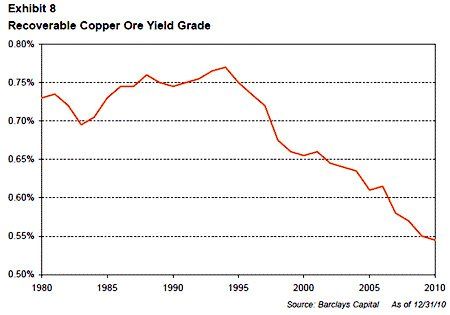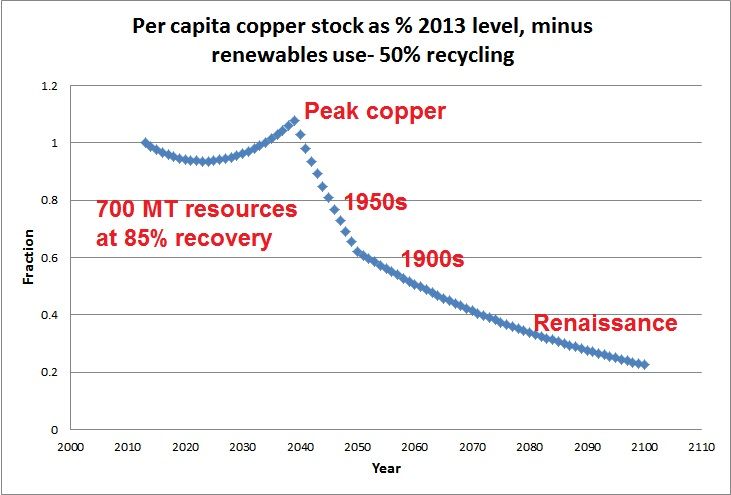~1000 MT of copper present above the mineralogical barrier
600 MT has already been mined, 400 left
340 MT left at 85% recovery efficiency
400 MT in-use stock
Consumption 15 MT/year growing at 3%/year
75% recycling rate (only chemical losses during recycling processes)
30 year product life, 1% annual depreciation of copper stock
330 MT renewables implemented linearly 2013-2050
Renewables consumption subtracted out of in use stock with no recycling losses
1.0085% annual pop growth 2013-2050
Society's ability to consume energy is proportional to copper stock
75% recycling:
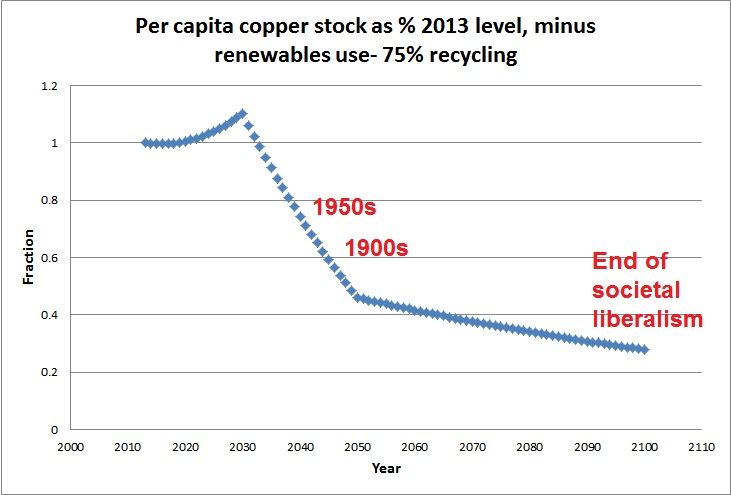
Realistic (50%) recycling:
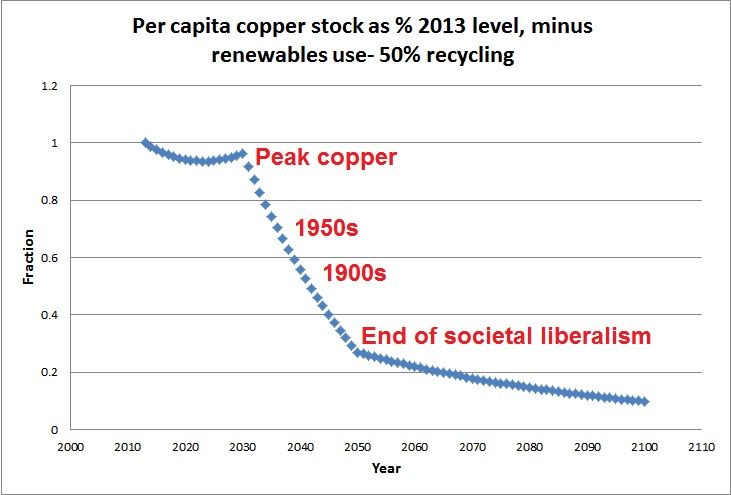
Edited by ae4g5g6hsdfgh ()
i guess i'm a fascist now.
bound2hostageXchange posted:i bullshitted the op as always, the actual resource is like 700 MT not 400 MT, but not all of that is going to be extracted anyway. mercury peaked in 1975 even though there are still supposedly 400 years of resources left.
actually the op was by poster ae4g5g6hsdfgh. i think you'll find that you are mistaken if you examine the facts.
Resources Australia lists the Economic Demonstrated Resources (EDRs) for several commodities. These are better than the inferred resources, which are a broader category but usually aren't given value by the market because they're highly speculative.
http://www.ga.gov.au/cedda/publications/1201
Let's assume that the in-use stocks for these resources is similar as the case for copper- the in use stock is equal to half the resources. 20% of the consumption goes to solders, which is probably growing in line with the electrical industry, at least 5% per year. Electrical equipment has a very low recovery rate and even when the government puts a gun to people's heads and tells them to recycle it (eg disposal bans) these regulations have very little effect.
So just subtracting out the solder use alone we find that electronics production will run into problems sometime before 2060.
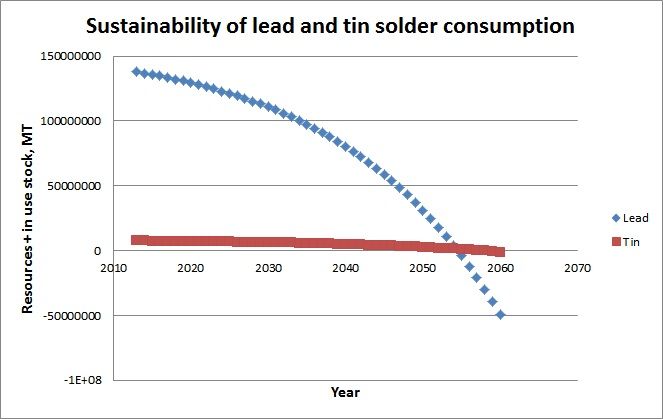
If we use current electronics industry growth rates of about 10% a year, things run out just in time for the Kurzweilian singularity.
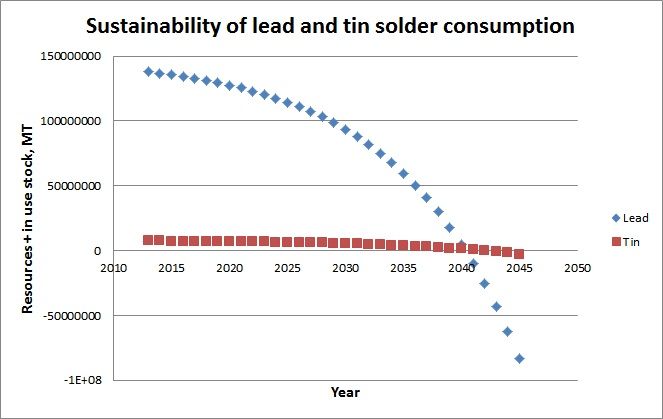
I think he's a Nazi, but what kind of political and economic systems does that entail? Isn't Nazism, at its end result, basically liberalism?
One of the coolest parts of German/Italian/Spanish Fascism is that they closed off their economies to foreign investment and pursued economic autarchy and resource self-sufficiency. Jewish Capital was restrained from using trade globalization to control the Volk.
bound2hostageXchange posted:i bullshitted the op as always, the actual resource is like 700 MT not 400 MT, but not all of that is going to be extracted anyway. mercury peaked in 1975 even though there are still supposedly 400 years of resources left.
sure it could be said that mercury peaked in 1975 with A Night At the Opera, Bohemian Rhapsody is without question his most iconic song, but 1977's arguably even more anthemic News of the World actually sold more copies, going quadruple platinum[fig. 1] in the US alone
1.
